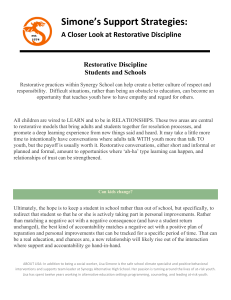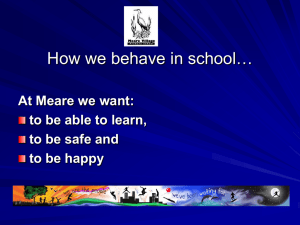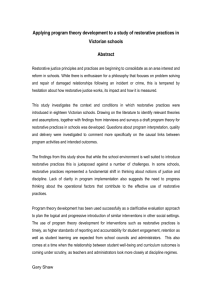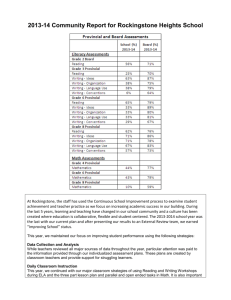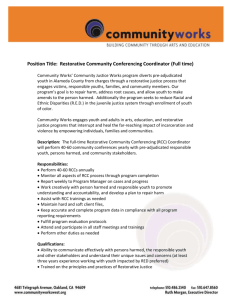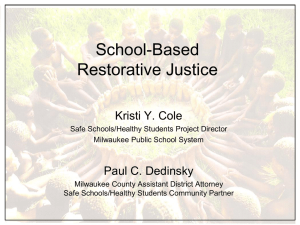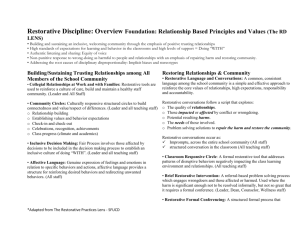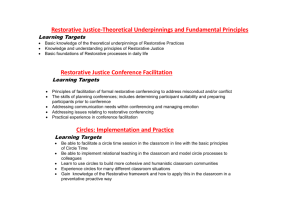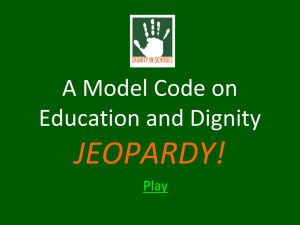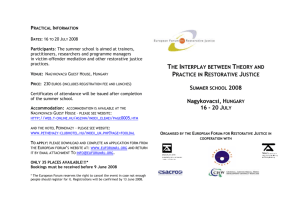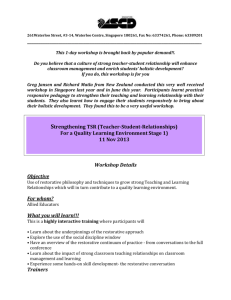8 – Partnership`s Restorative Justice
advertisement
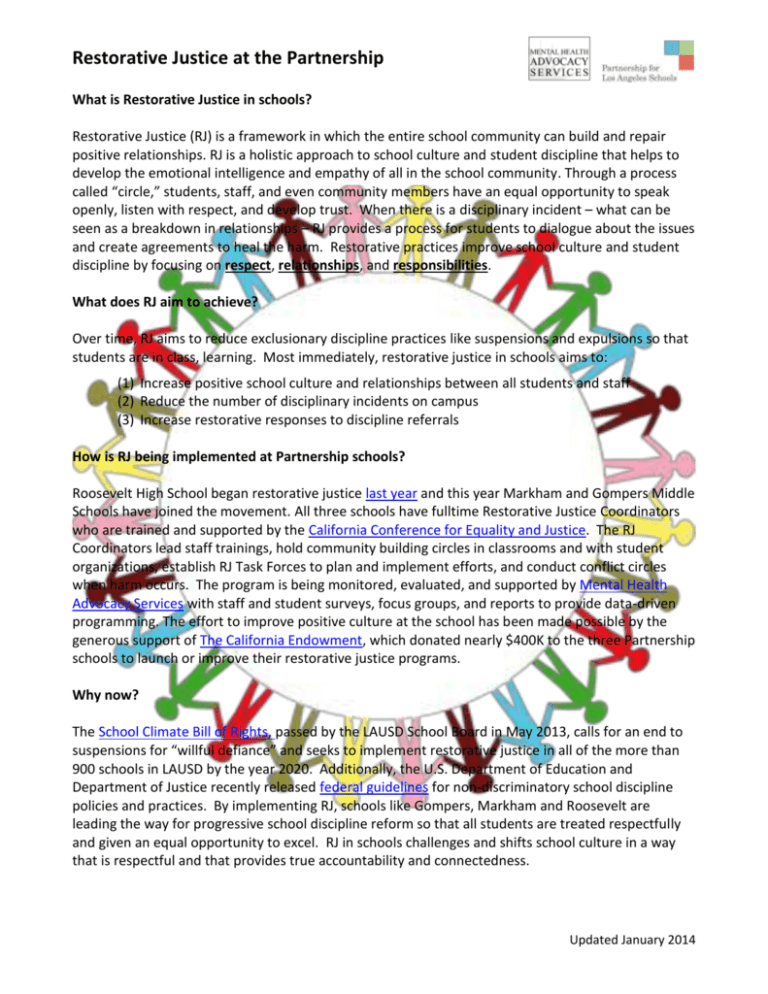
Restorative Justice at the Partnership What is Restorative Justice in schools? Restorative Justice (RJ) is a framework in which the entire school community can build and repair positive relationships. RJ is a holistic approach to school culture and student discipline that helps to develop the emotional intelligence and empathy of all in the school community. Through a process called “circle,” students, staff, and even community members have an equal opportunity to speak openly, listen with respect, and develop trust. When there is a disciplinary incident – what can be seen as a breakdown in relationships – RJ provides a process for students to dialogue about the issues and create agreements to heal the harm. Restorative practices improve school culture and student discipline by focusing on respect, relationships, and responsibilities. What does RJ aim to achieve? Over time, RJ aims to reduce exclusionary discipline practices like suspensions and expulsions so that students are in class, learning. Most immediately, restorative justice in schools aims to: (1) Increase positive school culture and relationships between all students and staff (2) Reduce the number of disciplinary incidents on campus (3) Increase restorative responses to discipline referrals How is RJ being implemented at Partnership schools? Roosevelt High School began restorative justice last year and this year Markham and Gompers Middle Schools have joined the movement. All three schools have fulltime Restorative Justice Coordinators who are trained and supported by the California Conference for Equality and Justice. The RJ Coordinators lead staff trainings, hold community building circles in classrooms and with student organizations, establish RJ Task Forces to plan and implement efforts, and conduct conflict circles when harm occurs. The program is being monitored, evaluated, and supported by Mental Health Advocacy Services with staff and student surveys, focus groups, and reports to provide data-driven programming. The effort to improve positive culture at the school has been made possible by the generous support of The California Endowment, which donated nearly $400K to the three Partnership schools to launch or improve their restorative justice programs. Why now? The School Climate Bill of Rights, passed by the LAUSD School Board in May 2013, calls for an end to suspensions for “willful defiance” and seeks to implement restorative justice in all of the more than 900 schools in LAUSD by the year 2020. Additionally, the U.S. Department of Education and Department of Justice recently released federal guidelines for non-discriminatory school discipline policies and practices. By implementing RJ, schools like Gompers, Markham and Roosevelt are leading the way for progressive school discipline reform so that all students are treated respectfully and given an equal opportunity to excel. RJ in schools challenges and shifts school culture in a way that is respectful and that provides true accountability and connectedness. Updated January 2014
